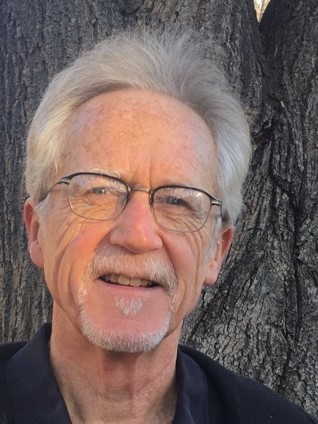Jeff Pearson
I came out of retirement in 2019 to take on a pro bono asylum case with the Rocky Mountain Immigrant Advocacy Network (RMIAN) after a close friend told me about RMIAN’s work, and what a critical difference legal representation makes to an asylum seeker’s chances of success.
My client was a detained African man who had been imprisoned, beaten and tortured in his home country by government security forces on account of his tribal membership. RMIAN got me started on the case with a roadmap of the facts and legal issues, and an overview of local immigration court procedure. Through RMIAN’s partnership with the Immigration Justice Campaign, I was able to access a helpful guide as well as mentorship and an online bank of sample pleadings and practical advice.
I met the client for the first time at a master calendar hearing at the court in the ICE detention facility in Aurora, Colorado. I dove in, and the case consumed much of my attention for the next three and a half months. Learning a new area of law was initially daunting, and often things seemed irrational. Accessing your client in detention is not easy, either. For five weeks my interpreter and I were barred from seeing my client because of a mumps/chickenpox quarantine at the facility. Even once the quarantine was lifted, wait times to see the client at the facility were unpredictable and often long. My client, however, for all he had suffered, and for all the months he spent in ICE detention, remained a steadfast model of grace, courage and composure. He never failed to greet me with a disarming smile, a warm handshake. He never complained as we went over and over the details of his painful story.
In periodic Justice Campaign-sponsored conference calls with my mentor and other pro bono attorneys, I was able to ask and have answered practical questions that arose in the case. It was also useful in these calls to be able to chat with other lawyers working their way through asylum cases for the first time. Justice Campaign staff attorneys at AILA gave quick and spot-on attention to my legal questions via email, and reviewed and commented on my draft trial brief. A legal issue I had not anticipated arose just before trial, and my Justice Campaign volunteer mentor and the AILA attorneys I worked with immediately kicked in to help me develop a strategy to handle it.
On my own, I found a country expert in England who had testified in asylum cases in the UK for persons from my client’s country of origin, and from his tribe; the expert worked on the case pro bono. The non-profit Human Rights Clinic in Denver connected me with a pro-bono doctor who performed a medical forensic exam that helped corroborate my client’s accounts of torture. I located, and obtained an affidavit from, a person in Australia who gave testimony on a fact question involving the client’s experiences in transit to America that in turn bore on an important legal issue. The services of my interpreters were funded by a Denver non-profit foundation and by RMIAN. In my opinion, had the legal, expert witness and technical costs of this case not been provided pro bono, they would have run to tens of thousands of dollars. Dollars this client didn’t have, condemning him to continued detention.
At trial, the judge granted asylum. Two days later, I saw my client for the first time outside of detention—in the sunlight and open air. His smile was radiant, as I think mine was, too. I’d never been happier about the outcome of a case, or more fulfilled by doing one.
My retired attorney friends tell me they can’t take a pro bono immigration case because they’re “inactive,” or their licenses have “lapsed,” or they don’t have professional liability insurance. But in Colorado, Supreme Court Rule 204.6 expressly allows a retired, inactive attorney to take on pro bono cases for non-profit organizations so long as she limits her practice to such cases. And in Colorado, RMIAN covers pro bono asylum attorneys under its professional liability insurance.
At least 44 states have emeritus pro bono rules in place. A starting point for determining whether a given state’s rules facilitate pro bono representation by retired lawyers of asylum clients is the following ABA link: https://www.americanbar.org/groups/law_aging/publications/bifocal/vol-40/vol-40--issue-5/update-on-emeritus-pro-bono-practice-rules/. The need is great, the rewards are great, and nothing could be more important.

